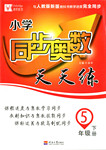题目内容
STUDY BOOKS
Basic Study Manual Hardcover: $ 37.50
Future success depends on the ability to learn. Here are the answers to the questions most often asked by parents, teachers, business trainers and by students themselves. Read this book and learn:
* What the three barriers (障碍)to study are and what to do about them
* What to do if you get tired of a subject you are studying
* Twenty-six simple drills to help you learn how to study easily, rapidly and with full understanding
Buy and read the Basic Study Manual and use it to dramatically improve your ability to study.
…………………………………………………………………………………………………….
Study Skills for Life Hardcover: $31.99
L. Ron Hubbard’s study technology for teenagers opens the door to their future success by giving them the ability to study and learn. Fully illustrated for easy comprehension.
…………………………………………………………………………………………………….
Learning How to Learn Hardcover: $24.99
The basics of effective study for 8 to 12-year-olds, fully illustrated. Children who read and apply the materials in this book regain their liking for study and their ability to apply this knowledge in life. Get this book for a child you want to see win at his studies!
…………………………………………………………………………………………………….
How to Use a Dictionary Picture Book for Children Hardcover: $34.90
In spite of billions of dollars spent on ‘educational research’, children are not taught the most basic skills of learning, even the most basic of these: how to use a dictionary. In fact, a search of educational books for children found no book that told them how to use a dictionary or that one should. Written for children 8 to 12-year-olds, this fully illustrated book will teach your child:
* How to find words in a dictionary * The different ways that words are used
* What the different marks and symbols that are used in a dictionary mean
* How to use a dictionary to correctly pronounce words
It includes a section for parents and teachers showing you how to use this book with children. Buy this book and give it to your children to unlock their education. What’s more, you’ll just pay 50% for it before May 1, 2006.
40. Some of the four books were illustrated in order to_________
A. help readers understand them B. persuade readers to buy them
C. reduce the cost of them D. make them suitable to different readers
41. If you buy the four books on April 1, 2006, your will have to pay_______ for them.
A. $129.38 B. $111.93 C. $64.69 D. $34.90
42. The purpose of the passage is to _______.
A. introduce the four books to readers B. help children to learn English
C. enrich students knowledge about nature D. sell the four books to students
40—42 ABD
解析

 同步奥数系列答案
同步奥数系列答案If you want to get the most out of the study of a language, you must also read for pleasure: novels, plays, travel books, and so on. And in reading books of this kind the important thing is to get on with the reading; to try to grasp(理解) what the writer is going to tell you in the book as a whole. This is impossible if you stop and think over the meaning of every single word which happens to be unfamiliar. You can not enjoy a story if you stop half a dozen times on every page in order to look up words in the dictionary. You may even prevent yourself from understanding the story as a whole by doing this.
When you are reading books of this kind, therefore, you will usually have to depend mainly on the context (上下文) to help you. If you meet an unfamiliar word, do not let it take too much of your attention from the main idea of the story. In all probability you will meet the same word again a few pages later on in a slightly different context, and each time you see it that your understanding of it will become more exact.
1.The phrase “to get on with reading” in the first passage has the same meaning as “_________”.
|
A.to try to grasp the meaning of every sentence in the book |
|
B.to try to catch the meaning of every word in the book |
|
C.to try to understand all the writer is going to tell you |
|
D.to try to understand the main idea of the book |
2.When you meet new words in reading such kinds of books, you’d better _________.
|
A.stop and look them up in a dictionary |
|
B.stop and think them over |
|
C.try to guess their meanings from the context |
|
D.have none of them |
3.From the passage the best way to read novels, plays and travel books is .
|
A.to read very slowly |
|
B.to read quickly and not too carefully |
|
C.to read very carefully |
|
D.to read very seriously |
4..What is the passage’s main idea?
|
A.You can learn a lot from the study of a language. |
|
B.Guess words’ meanings according to context. |
|
C.Reading for pleasure is important. |
|
D.Reading skills for books like novels, plays and so on |